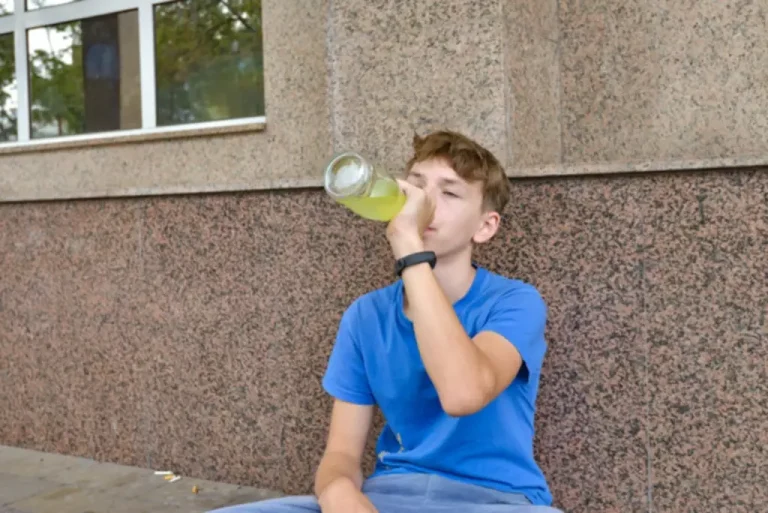
Secondly, MET emphasizes the individual’s autonomy and responsibility for change. It encourages self-efficacy and empowers individuals to take ownership of their recovery process. By focusing on personal choice and autonomy, MET helps individuals develop a sense of control and self-direction in their journey towards recovery. Motivational Enhancement Therapy (MET) is an evidence-based approach used in addiction recovery that focuses on enhancing an individual’s intrinsic motivation to change their addictive behaviors. MET recognizes that ambivalence and lack of motivation are common barriers to seeking. In fact, many studies have found brief motivation intervention to be quite effective in sustaining recovery.

Addiction Medicine Physicians: Specialized Doctors Treating Substance Use Disorders
Below is a sampling of many types of support that can be found. Therapists, counselors, and specialized programs, like Del Arroyo Recovery Center, offer guidance tailored to your unique journey. These professionals provide tools, insights, and perspectives https://ecosoberhouse.com/ that can fortify your motivation. Remember, seeking support isn’t a sign of weakness—it’s a testament to your commitment to a lasting recovery. Surrounding yourself with understanding and encouraging individuals can make a world of difference.
Consider the Costs of Drug Use
- Sober support networks are also available and consist of peers in recovery.
- Physical exercise, mindfulness practices, hobbies, and rest are all ways to take care of yourself.
- Motivation gives the strength and perseverance to battle challenges, withstand temptations, and stay devoted to the recovery procedure.
- With this mentality, the recovering alcoholic is prone to relapse.
- Other research pinpoints the values of cognitive behavioral therapy for relapse prevention, as it helps people change negative thinking patterns and develop good coping skills.
Our Akron addiction treatment center places growth at the core of the recovery process. By empowering people to embrace progress, Ray Recovery provides them with the means to flourish beyond addiction, paving the way for a future free from substance dependence. Research and clinical experience have identified a number of factors that promote recovery. Another is reorienting the brain circuitry of desire—finding or rediscovering a passion or pursuit that gives meaning to life and furnishes personal goals that are capable of supplanting the desire for drugs. A third is establishing and maintaining a strong sense of connection to others; support helps people stay on track, and it helps retune the neural circuits of desire and goal-pursuit. Learning new coping skills for dealing with unpleasant feelings is another pillar of recovery.

Find a Strong Support System That Will Support You Throughout Your Journey
Here are 15 motivational quotes to offer hope during your journey to a whole new you. As we reflect on these ten powerful stories of addiction recovery, we’re reminded of the incredible resilience of the human spirit. From the depths of heroin addiction to the grip of alcoholism, from battling dual diagnoses to maintaining long-term sobriety, each recovery motivation journey is a testament to the possibility of change and growth. In this article, we’ll delve into ten powerful journeys of individuals who have fought their way back from the brink of destruction. Their stories are raw, honest, and deeply moving, offering insights into the complex nature of addiction and the multifaceted process of recovery.


In short, get a strong support system, interact with the recovery community, and be a support to others. It’s important to find the right supporters for your recovery, just like finding the right treatment. If you are struggling with other mental health issues or are looking for a specialist near you, use the Psychology Today therapist directory here to find a practitioner who specializes in your area of concern.
Engage in Meaningful Activities
Strictly speaking, sobriety is the state of being sober—not being under the influence of alcohol or drugs. However, the word is often used in different ways in different contexts. Many 12-step programs suggest that sobriety means total abstinence, which means never using the substance again. Other definitions, however, focus on the process of recovery and coping habits that support health and wellness over the long term. Substance abuse has a number of social, financial and health consequences.
Then you can go to sleep knowing that you have left no stone unturned. The reason why this can work (It may not), is extremely important. You are making use of the human need for connection, and framing it, without preaching or threatening, as a choice. If you want connection, you will need to do something about the addiction. The key here is that on the level of the brain, the natural need for connection is one of the few things that has a biological pull equal, or nearly so, to the addiction.
Stay Accountable and Monitor Progress
This is challenging not only for a person’s self-esteem but also makes it harder for people who care about that individual to express their positive feelings for that person. While alcohol, drugs, or compulsive behaviors can initially mask insecurities and even make people feel more confident, these feelings are short-lived. Self-esteem refers to an individual’s overall subjective feelings of personal value and self-worth. It can have an effect on many areas of life, including substance use and recovery. Next, take a little time to generate a list of more specific personal recovery goals. Don’t worry at this point about the number of goals or how feasible they may be.
“Success is the sum of small efforts, repeated day in and day out.” ~ Robert Collier
